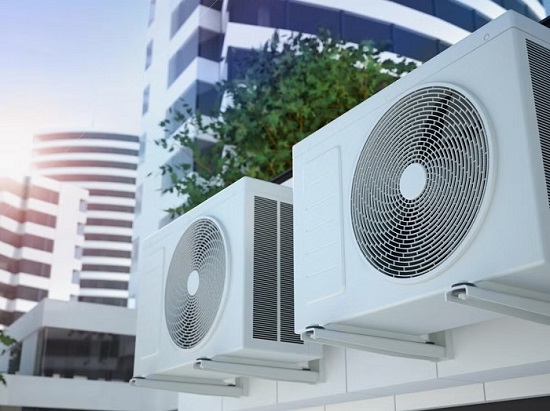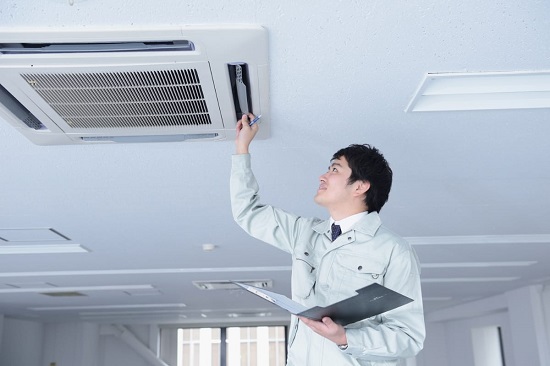
Are you sweating through another humid Preston summer, wondering if it's finally time to invest in proper cooling? Have you ever found yourself overwhelmed by the sheer variety of air conditioning options available today? Or perhaps you're simply curious about what makes one system better than another for your specific needs?
Choosing the right air conditioning unit for your home isn't just about picking the cheapest option or the flashiest model. It's about finding that perfect balance between comfort, efficiency, and value for money. With Preston's unique climate patterns mixing warm summers with unpredictable weather changes, selecting an appropriate cooling system becomes even more critical for year-round comfort.
This guide will walk you through everything you need to know about selecting the ideal air conditioning solution for your Preston home. From understanding different system types to calculating running costs, we'll explore the essential factors that'll help you make an informed decision. You'll learn how to determine the right size unit for your space, compare various cooling technologies, and navigate the often-confusing world of energy ratings. Plus, we'll tackle those burning questions about installation, maintenance, and getting the best value for your investment.
Understanding Your Cooling Needs
Before diving into specific models and brands, it's vital to understand exactly what you're trying to achieve with your air conditioning. Every home is different, and what works brilliantly for your neighbour might not be the best fit for your situation.
Start by thinking about your living patterns. Are you home during the day, or do you primarily need cooling in the evenings? Do you work from home and need a comfortable office space? These lifestyle factors will significantly influence both the type and size of system you'll need. Consider which rooms get the most use and whether certain areas of your home naturally run hotter than others due to sun exposure or poor insulation.
How Do I Calculate the Right Size Air Conditioner for My Room?
Getting the size right is absolutely critical for both comfort and efficiency. An undersized unit will struggle to cool your space, running constantly and driving up energy bills whilst never quite reaching the desired temperature. On the flip side, an oversized system will cool too quickly without properly dehumidifying the air, leaving you with a cold, clammy environment.
The basic calculation starts with measuring your room's square metres. Multiply the length by the width to get your floor area, then factor in ceiling height if it's above the standard 2.4 metres. As a rough guide, you'll need approximately 125-150 watts of cooling capacity per square metre for living areas, though bedrooms typically need less at around 80-100 watts per square metre.
Single Room vs. Whole House Cooling: Which Option Suits You Best?
The decision between cooling individual rooms or your entire home depends on multiple factors, including your budget, lifestyle, and home layout. Single-room solutions offer targeted cooling exactly where you need it, making them perfect for renters or homeowners who primarily use specific areas of their house.
Whole-house systems, whilst requiring a larger initial investment, provide consistent comfort throughout your property. They're particularly valuable for families who use multiple rooms simultaneously or for those who work from home and move between spaces throughout the day. These systems also tend to add more value to your property if you're considering selling in the future.

Types of Air Conditioning Systems Explained
Understanding the different types of air conditioning systems available is crucial for making an informed choice. Each type offers distinct advantages and limitations that'll affect both your immediate comfort and long-term satisfaction with your purchase.
Modern air conditioning technology has evolved significantly, offering solutions for virtually every situation and budget. From simple portable units to sophisticated multi-zone ducted systems, there's something to suit every Preston home. The key is matching the right technology to your specific requirements whilst considering factors like installation complexity, running costs, and aesthetic preferences.
Split System Air Conditioners: Pros and Cons
Split systems remain Australia's most popular air conditioning choice, and for good reason. These systems consist of an indoor unit connected to an outdoor compressor, offering efficient cooling without the need for extensive ductwork. They're relatively affordable to purchase and install, making them accessible for most budgets.
The advantages of split systems extend beyond cost. They operate quietly, with most of the noise-generating components housed in the outdoor unit. Modern splits offer excellent energy efficiency, with many achieving impressive star ratings. They're also perfect for targeting specific areas, allowing you to cool only occupied spaces rather than wasting energy on empty rooms. Installation is typically straightforward, usually completed within a day.
Ducted Air Conditioning: Is It Worth the Investment?
Ducted systems represent the premium end of residential air conditioning, offering whole-house climate control through a network of ducts hidden in your ceiling space. While the upfront investment is substantial, these systems deliver unmatched convenience and aesthetic appeal.
The benefits of ducted air conditioning are compelling for many homeowners. You get consistent temperature throughout your entire home with just one system to maintain. The indoor components remain completely hidden, preserving your interior design aesthetic. Modern ducted systems offer sophisticated zoning capabilities, letting you cool different areas to different temperatures or shut off unused zones entirely. They also add significant value to your property, often recouping much of the installation cost upon resale.
Portable and Window Units: Temporary Solutions or Long-term Options?
Portable and window air conditioners often get overlooked in favour of permanent installations, but they serve important roles in the cooling landscape. These units offer immediate relief without commitment, making them perfect for renters or those testing whether air conditioning is worth the investment.
Portable units win on convenience and flexibility. You can move them between rooms as needed, store them during cooler months, and take them when you move house. They require no professional installation – just plug in and position the exhaust hose through a window. For Preston renters dealing with stubborn landlords, they're often the only viable option. Window units offer similar benefits with slightly better efficiency, though they're less common in Australia than overseas.
What's the Difference Between Reverse Cycle and Cooling-Only Units?
The choice between reverse cycle and cooling-only systems might seem straightforward, but there's more to consider than just whether you want heating capability. Reverse cycle units, also known as heat pumps, can both cool and heat your space by reversing their refrigeration cycle.
Reverse cycle systems offer remarkable value in Preston's variable climate. Rather than purchasing separate heating and cooling solutions, you get both from one unit. They're incredibly efficient heaters, producing three to four units of heat for every unit of electricity consumed. This makes them far more economical than electric heaters or even gas heating in many cases. The convenience of year-round climate control from a single system simplifies both operation and maintenance.
Energy Efficiency and Running Costs
Energy efficiency should be at the forefront of your decision-making process. With electricity prices continuing to rise, the running costs of your air conditioning can quickly overshadow any savings made on the initial purchase price.
Understanding energy efficiency goes beyond simply looking at star ratings. It's about comprehending how different features and technologies impact your power consumption, and how your usage patterns affect overall running costs. Smart buyers focus on total cost of ownership rather than just the sticker price.
Understanding Energy Star Ratings: What Do They Really Mean?
Those star ratings on air conditioners aren't just marketing fluff they're standardised measurements that help you compare efficiency across different models. The more stars, the more efficient the unit, with each additional star representing roughly 10% better efficiency.
The rating system measures how much cooling (or heating for reverse cycle units) you get per unit of electricity consumed. A 5-star unit might produce 5kW of cooling whilst consuming just 1kW of electricity, giving it a coefficient of performance (COP) of 5. Compare this to a 2-star unit that might only achieve a COP of 3, and you can see how the efficient unit delivers 66% more cooling for the same energy input.
Smart Features That Save Money: Timers, Sensors, and Zoning
Modern air conditioners come packed with intelligent features designed to optimise comfort whilst minimising energy waste. These smart functions can dramatically reduce running costs when used properly.
Programmable timers let you cool your home just before you arrive rather than leaving the system running all day. Motion sensors can detect when rooms are unoccupied and adjust operation accordingly. Some units even learn your routines and automatically optimise their schedules. Wi-Fi connectivity allows remote control via smartphone apps, so you can adjust settings on the go or monitor energy consumption in real-time.
Conclusion
Making the right air conditioning choice for your Preston home doesn't have to be overwhelming. By understanding your specific cooling needs, carefully comparing system types, and considering long-term costs alongside initial prices, you're now equipped to make an informed decision that'll keep you comfortable for years to come.
Remember that the perfect air conditioning solution varies for every household. What matters most is finding the system that aligns with your lifestyle, budget, and home characteristics. Whether you opt for the flexibility of split systems, the comprehensive comfort of ducted air conditioning, or a combination approach, prioritising proper sizing, energy efficiency, and professional installation will ensure optimal performance. Take time to research brands, compare quotes from reputable Preston suppliers, and don't hesitate to ask questions about anything you're unsure about.





